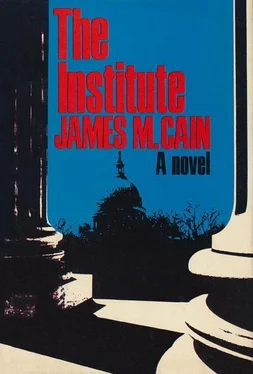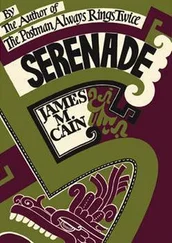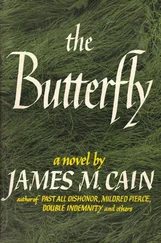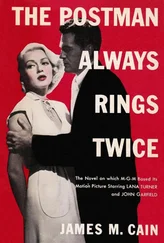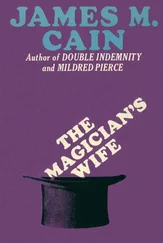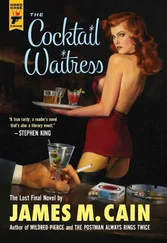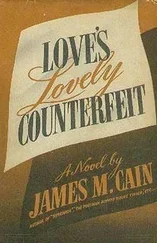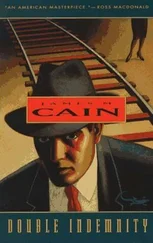“You always say it exactly the way I feel it. It would look peculiar, though, if I weren’t here when he arrives.”
“You have to be there, of course.”
So we sweated it out. But around five he called me to say that he was at the Garrett Building and to meet him at Downing’s office. I drove in. The Pell Building is on Fourteenth Street below H Street, and I put the car in a New York Avenue parking lot and walked. But who did I meet, also walking, but Mr. Garrett! He waved and fell in step beside me. But he didn’t shake hands. At Downing’s office the girls had gone.
“We have the place to ourselves,” Downing said. He was a man around forty, slightly bald, and most deferential to Mr. Garrett, telling him: “Sir, you may not remember me, but I met you once, and I’ve heard you speak once or twice. I was the one on the front row, taking notes.”
“Yes, I remember you well,” said Mr. Garrett.
We laughed, and Mr. Garrett introduced me. “Dr. Palmer will sit in on this,” he said.
“Not with me, he won’t,” Downing said. “No one sits in on this but thee and me, Mr. Garrett.”
“Oh? You’ve got to that certain point?”
“What certain point?”
“Of excluding all witnesses.”
“Okay, call it that.”
They went into Downing’s private office while I tramped around the reception room and outer offices, the doors of which were open. I examined the big framed portraits of Roger Taney, Charles Evans Hughes, William Howard Taft, Earl Warren, and Warren Burger until I knew practically every fold of their robes. I did this for an hour. Every so often the snarl of Downing’s voice told me there might be a reason for excluding witnesses. Later, I found out that what the argument was about was what had been done by Colonel Lucas, the president of Tombigvannah when Bagastex began to sag. He had sold off Tombig subsidiaries, ostensibly for cash to operate with but actually to detach them from the crash when it came, so they would stay in the Lucas family, as the buyer was Lucas’s brother.
Garrett, while offering a decent deal — cash to the building contractor and ARMALCO stock for Tombig, on a three-for-one basis — was doing it only on the condition that Tombig recaptured the subsidiaries and bought them back for what had been paid. They included a cigar factory in Charleston, a breakfast food plant in Savannah, a lumber mill in Alabama, and a power plant near Augusta. The recapture stipulation was what Downing was snarling about. But Mr. Garrett didn’t snarl. He didn’t have to. He was holding trump cards, as he usually did. As a sort of preliminary to whatever might come up, he had bought stock some time before — Tombig stock — and he now told Downing: “O.K., we let the bankruptcy suit proceed, if that’s how you want to play it. But this afternoon or tomorrow, a stockholder who happened to buy in just in case, will file a complaint alleging fraudulent disposal of assets before involuntary bankruptcy, which is a felony. And if Leonard Downing’s a party to it, if it turns out that he helped compound the fraud, something very unpleasant is going to happen to Leonard Downing.”
“I see. I see.”
So that’s how things stood — at least as I piece them together now from what was told me later — when Mr. Garrett came out, closed the door, and dialed one of the secretary’s phones, still without looking at me. In a moment he began to talk in a low, guarded tone: “Sam?” — who seemed to be Sam Dent, my friend from the Dover trip — “Sam, I’m at a lawyer’s office, man named Leonard Downing, in the Pell Building. I need you here at once. Yes, it’s on that Tombigvannah thing.”
He hung up and then sat down in a chair, still paying no attention to me. Pretty soon Downing came out, half-sat on the typewriter table, and mopped his bald spot with his handkerchief. “Well,” he said, “we’re in luck. Colonel Lucas is on his way over. He just happened to be in town.”
“I thought he might be,” said Mr. Garrett.
“We could wind this thing up tonight.”
“I just talked to Sam Dent, my lawyer. He’s on his way.”
“Yeah, I know Sam.”
They paid no attention to me then or when various people arrived, in gabardines, summer suits, and shorts. Downing would jerk his thumb as soon as a new one showed, and he would join the others in one of the inner offices. Then a big, heavyset man came in. He had that brown mahogany color that stays outdoors all the time. His name, I later learned, was O’Connor. He was the contractor. Downing introduced him to Mr. Garrett, saying: “This is the Richard, Garrett, Jim. We’re trying to lay a deal — a three-way thing for cash, stock, and assets — that will clear up things for you. So act respectful.”
“I would, anyway.”
“Okay, but lean on it.”
“Mr. Garrett, greetings, sir.”
“Jim, I’ve heard of you, and nothing but good.”
Then Sam Dent came in, and Mr. Garrett at once took him into one of the offices to talk. But when they came out, he looked worried. Then at last came a character who had to be seen to be believed, and even then he didn’t look real. He was about fifty, with white hair, white eyebrows, and white goatee, as well as a white sharkskin suit, white shoes, and an old-fashioned Panama hat, and he carried a gold-headed cane. Here was the genuine article, a Southern colonel with so much honesty shining out of his face that I wouldn’t have trusted him — and no sensible person would — any farther than I could throw him.
“Colonel Lucas,” exclaimed Downing, first bowing and then shaking hands; “I give you Mr. Richard Garrett, the Mr. Richard Garrett!”
“Mr. Garrett,” said the colonel, “the pleasure of this moment is surpassed only by its memorable nature, from the honor it accords me.” Or “accowds me,” actually, to report it as it sounded.
“Colonel Lucas,” said Mr. Garrett, “I reciprocate the sentiments you express, if not in such felicitous words, then in equal uplift of spirit. I have long looked forward to this honor.”
His face was also glowing with honesty — or, at least, with something. The two men went into Downing’s office, closed the door, and left the rest of us to twiddle our thumbs. Dent came over, and we shook hands. “Will you be seeing Mrs. Garrett soon?” he said. “Like, for instance, tonight?”
“I hadn’t expected to. Why?”
“He pays attention to what she says. You could put the bug in her bonnet to talk him out of this thing.”
“You mean Bagastex?”
“Yeah, Bagastex.”
“But what do I know about it? And what do you?”
“I know plenty about it.”
He started talking about how Bagastex had flopped and how ARMALCO was heading for trouble in loading itself down with such a headache. I interrupted to say that I was partly responsible, since I had tipped Mr. Garrett off to the deal, and besides, I felt that it tied in with the Institute I was starting. Sam kept shaking his head, but then the door of Downing’s office flew open and there was the colonel, his hat in one hand and his cane in the other, his hair falling down on his shoulders. “Sir,” he bellowed back toward the office, “what do you take me for? That you would insult me so?” Mr. Garrett strolled out, cool, calm, and friendly. “Colonel,” he said quietly, “I take you for a peach, a beautiful Georgia peach that’s been skinned, the slipperiest object yet created by God. You are beautiful. You are skinned. Bagastex saw to that. And you are slippery. That, you have to admit.”
“I do not admit any such thing. And I resent your remowk.”
“I was just being funny.”
“I see nothing funny about it.”
“Trying to be funny, let us say.”
Читать дальше
